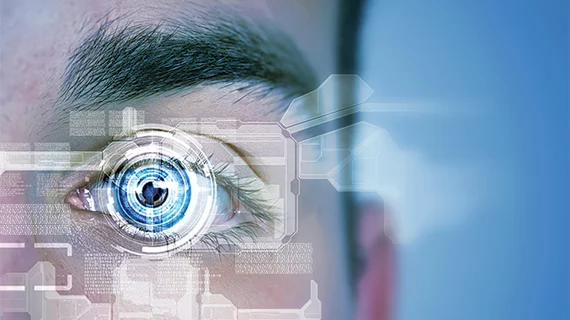FDA-approved AI diabetic retinopathy system able to make diagnoses in 20 seconds
Research detailing the first FDA-approved artificial intelligence (AI) system to autonomously detect diabetic retinopathy was published Aug. 28 in Nature Digital Medicine.
In the study, principal investigator Michael Abràmoff, MD, PhD, and colleagues examined 900 adult patients with diabetes but no history of diabetic retinopathy across 10 primary care sites. After obtaining retinal images, the AI system was able to make a diagnosis in 20 seconds.
Compared to the “gold standard” diagnostic for diabetic retinopathy—the Wisconsin Fundus Photograph Reading Center grading—the IDx-DR AI method exceeded pre-specified endpoints. The platform achieved an 87 percent sensitivity, 90 percent specificity, and 96 percent imageability, according to authors.
"The AI system's primary role is to identify those people with diabetes who are likely to have diabetic retinopathy that requires further evaluation by an eye-care provider,” said Abràmoff, with the University of Iowa, in a statement. “The study results demonstrate the safety of autonomous AI systems to bring specialty-level diagnostics to a primary care setting, with the potential to increase access and lower cost.”
The University of Iowa-created method received FDA approval in April. In June, providers at the Diabetes and Endocrinology Center at UI Health Care-Iowa River Landing in Coralville became the first in the U.S. to use the system for patient-screening, according to the release.
In the future, Abràmoff and colleagues hope to extend their technology to other eye diseases.
"We are hoping to do this also for early detection of diseases like glaucoma and macular degeneration. We are working on those algorithms already. The goal is to get these specialty diagnostics into primary care and retail, which is where the patients are," Abràmoff said.

